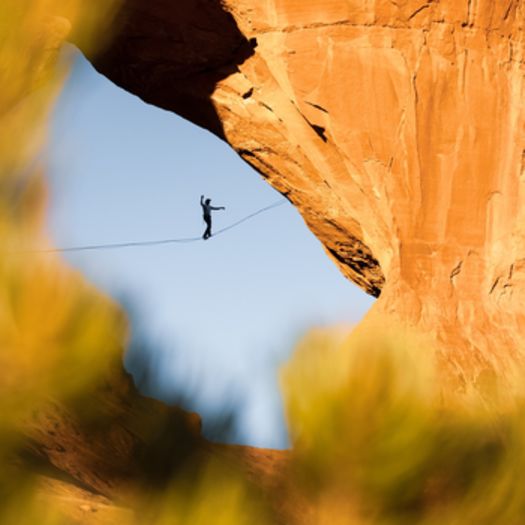
Expert Advice
How to Set Up A Travel Trailer at the Campground
Here are some helpful tips from our partners at the RV Aftermarket for setting up your travel trailer at the campground.
Step-by-Step Guide to Setting Up Your Travel Trailer
Setting up your RV at a campsite for the first time can seem daunting, especially if you're new to RVing. However, by following a systematic approach, you can make the process smooth and efficient. This guide provides step-by-step instructions to help you set up your travel trailer at an RV park, covering everything from checking in the campground to relaxing at your site.
1. Check-In
When you arrive at your campground, the first step is to check in at the main office. Here, you'll receive a map, your site number, and a list of park rules. Familiarize yourself with these rules to ensure a pleasant stay.
Hitches:
- Equalizer Hitches (pictured in video)
- Blue Ox Weight Distribution Hitches
- Camco Weight Distribution Hitches
2. Assess Your Site
Before backing in, inspect your site. Remove any obstacles like picnic tables or fire pits that might interfere. Ensure there's enough space for slide-outs and awnings. If the site is heavily slanted, remove the weight distributing bars in a level area before backing in.
Chocks:
- Valterra Chocks (Valterra pictured in video)
- Camco Chocks
- BAL Chocks
Leveling:
- UltraFab Leveling Blocks (UltraFab pictured in video)
- Valterra Leveling Blocks
- Camco Leveling
- Stromberg Carlson Leveling
3. Level the Trailer
Left to Right Leveling: Position the trailer and check the front level. Place leveling blocks next to the tires on the low side, creating a pyramid if necessary. Pull forward, insert the blocks, and back the trailer onto them.
Chock the Tires: Place chocks in front of or behind the tires to prevent rolling. For tandem axle trailers, use tire locking chocks to immobilize the tires.
4. Disconnect from the Tow Vehicle
Remove Weight Distributing Hitch: Raise the jack to relieve tension on the hitch bars, then remove the bars. Retract the jack to remove upward pressure, take out the hitch pin, and unlock the coupler. Extend the jack until the coupler pops off the hitch ball.
Disconnect Cables: Remove the safety cables, electrical plug, and breakaway cable before moving the tow vehicle.
5. Level Front to Back
Check the side level of the trailer and use the tongue jack to adjust the front until the bubble is centered.
6. Stabilize the Trailer
Lower the scissor jacks to stabilize the trailer. A cordless drill can make this easier, but the manual tool works as well. Do not over-tighten; they are meant for stabilization, not lifting.
Scissor Jacks:
- BAL Scissor Jacks (BAL pictured in video)
- Lippert Scissor Jacks
- Camco Scissor Jacks
Drill Attachments:
7. Connect Power
Choose the Right Plug: Use a 30 amp or 50 amp plug based on your trailer’s requirements.
Surge Protector: Connect a surge protector to monitor and clear any anomalies. Attach the cord to the surge protector and then to the trailer.
8. Hook Up Water
Flush the Spigot: Run the water until it's clear.
Pressure Regulator: Connect a water pressure regulator to manage high pressure.
Water Filter: Attach a water filter to the spigot, let some water run through, then connect the hose to the RV’s water inlet.
9. Connect Sewer
Safety First: Wear waterproof gloves.
Hook Up Sewer Hose: Ensure slide valves are closed before removing the cap. Connect one end of the hose to the trailer and the other to the sewer inlet. Use a clear connector to monitor waste flow.
Dump Tanks: Always dump the black tank first, followed by the gray tank. Avoid cross-contamination by not opening both valves simultaneously.
Clean Up: Remove the hose, drain remaining liquids, and store it properly. Dispose of gloves safely.
10. Extend Slide-Outs and Awnings
Before extending slide-outs, ensure there are no obstacles inside or outside. Push the button to extend, stopping when fully extended but not overextending. Recheck and tighten scissor jacks if needed.
Awnings
11. Turn on Propane
Turn the propane valve to the appropriate direction. Test appliances like the range to ensure functionality.
12. Interior Check
Carefully open cabinets to avoid items falling. Turn on the air conditioner, refrigerator, and water heater.
Setting up your RV at a campsite becomes simpler with practice. By following these detailed steps, you'll quickly become proficient and enjoy a relaxing and enjoyable camping experience. Happy RVing!











